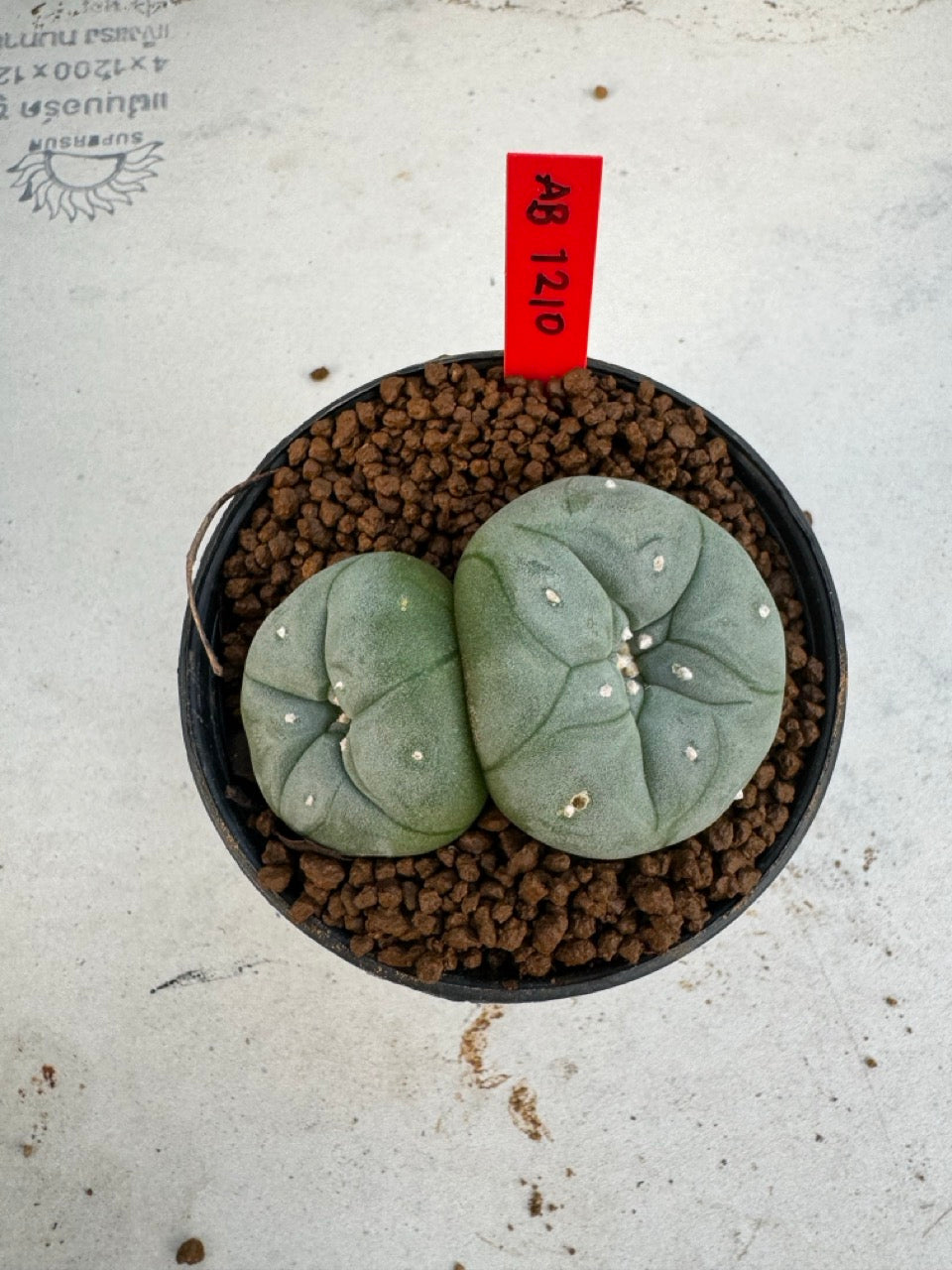sandbridgefarm
Lophophora Williamsii Twin size 4-5 cm own root grow from seed
Couldn't load pickup availability
ENGLISH: Medicine of God, Devil’s root, Divine herb, Dry whiskey, Cactus pudding, Devil's-root, Diabolic-root, Divine cactus, Dry-whiskey, Dumpling cactus, Indian-dope, Mescal-buttons, Turnip cactus, Peyote, Pellote, Mescal Buttons, Whiskey cactus, White-mule
Description: Lophophora williamsii is a solitary or (rarely) caespitose, spineless cactus, normally unicephalous but becoming polycephalous with age or injury,
Stem: Glaucous green, dull bluish or greyish green, very succulent, globular, top-shaped, or somewhat flattened up to 6 cm tall, 12 cm diameter, with a woolly top; The subterranean portion of the stem, which is as wide as the aerial portion, extends several cm below the surface of the ground and transitions smoothly (through a thin hypocotyl) into a large taproot which may extend over 25 cm below ground level.
Ribs: (5 when young) 7 to 13 (very rarely 4 or 14 ) broad, rounded, straight, or spiralled, often tuberculate, sometimes irregular and indistinct, with transverse furrows forming more or less regular, polyhedral tubercles;
Roots: Napiform, usually 8-11 cm long
Areoles: Round spineless, bearing flowers only when young with some bunches of long erect, matted, wooly greyish hairs, up to 1 cm long.
Flowers: Solitary, campanulate, 1.5-2.5 cm across when open usually pink (rarely whitish) outer perianth segments and scales ventrally greenish. They emerge from the mass of hairs at umbilicate centre of crown each surrounded by a mass of long hairs. Stigma-lobes 5-7, linear, pink.
Blooming season: Flowers sporadically throughout summer.
Fruits: Club-shaped, red to pinkish, 2 cm long or shorter which can be very delectable and sweet-tasting when eaten.
Seeds: Small and black up to1 mm in diameter, with broad basal hilum, tuberculate-roughened.
Share







